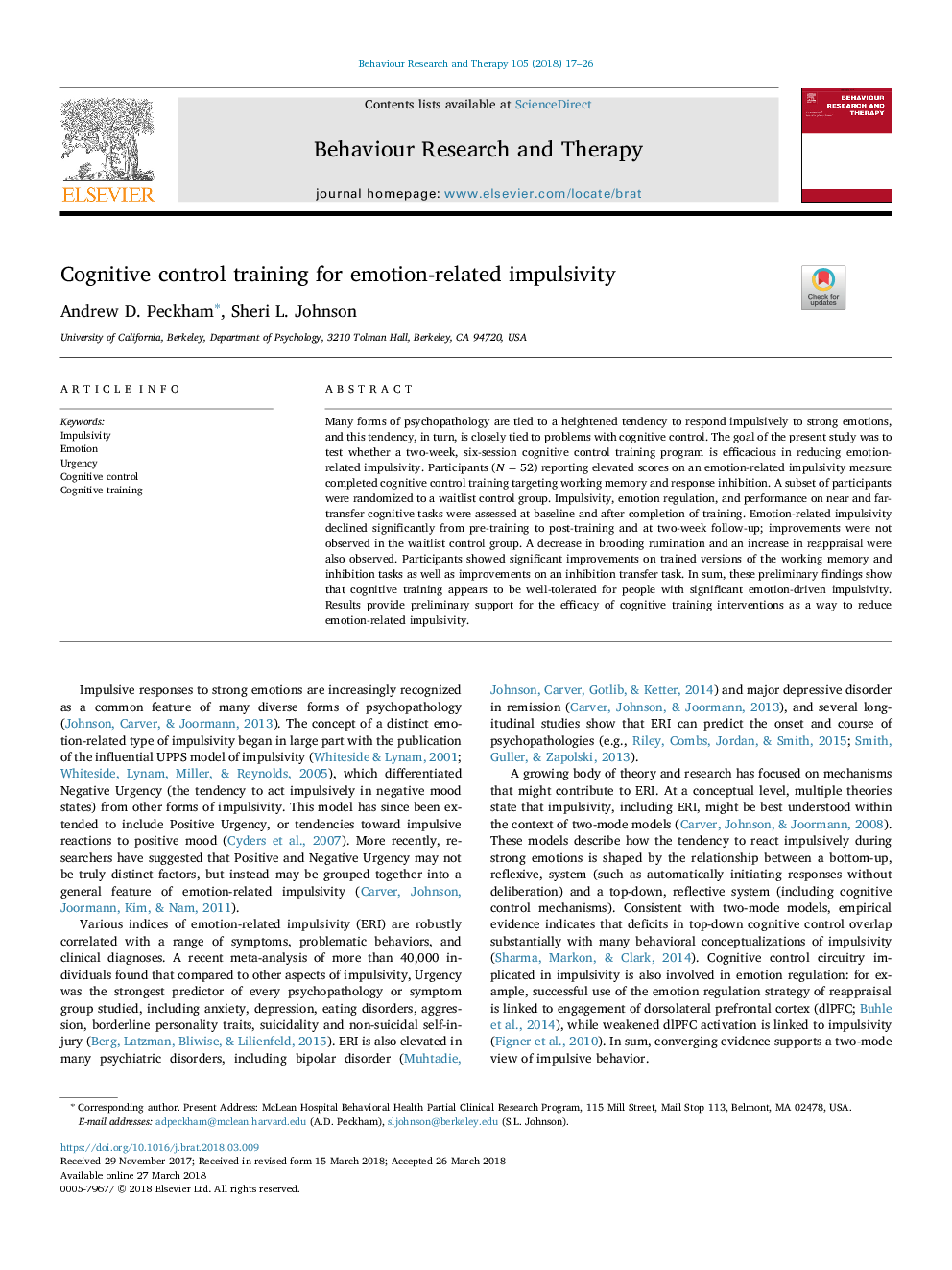ترجمه فارسی عنوان مقاله
آموزش کنترل شناختی برای تکانشگری مربوط به احساسات
عنوان انگلیسی
Cognitive control training for emotion-related impulsivity
| کد مقاله | سال انتشار | تعداد صفحات مقاله انگلیسی |
|---|---|---|
| 122213 | 2018 | 10 صفحه PDF |
منبع

Publisher : Elsevier - Science Direct (الزویر - ساینس دایرکت)
Journal : Behaviour Research and Therapy, Volume 105, June 2018, Pages 17-26
ترجمه کلمات کلیدی
تکانشی، هیجانی، فوریت، کنترل شناختی، آموزش شناختی،
کلمات کلیدی انگلیسی
Impulsivity; Emotion; Urgency; Cognitive control; Cognitive training;

